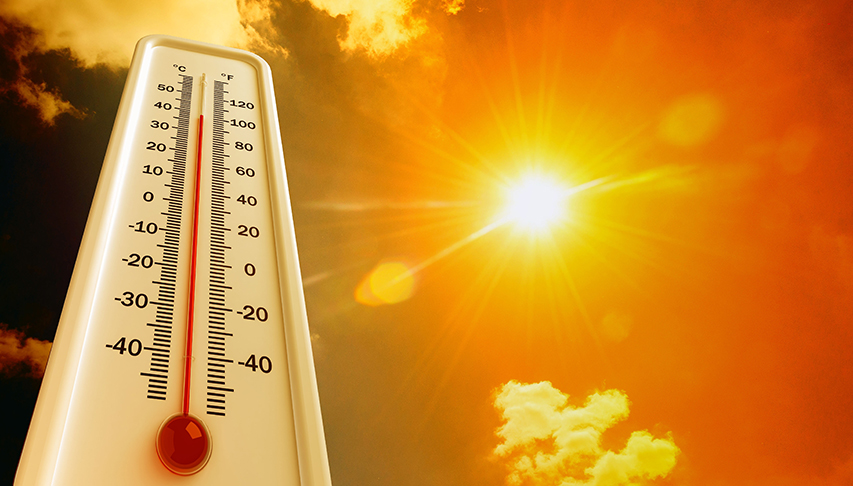Extreme heat is a serious health risk, especially for children and school communities. By understanding the risks of extreme heat and taking proactive measures, schools can help protect the health and well-being of students and staff.
Early Symptoms of Heat Illness and Types of Heatstroke
Heat illness can affect anyone, but children, the elderly, and those with underlying health conditions are at greater risk. Early recognition of symptoms can prevent severe outcomes.
Early Symptoms of Heat Illness:
Heavy sweating | Fatigue | Dizziness or light-headedness
Muscle cramps | Nausea or vomiting
Headache | Weakness
If you notice someone exhibiting symptoms of heat illness, take the following steps immediately:
- Move to a Cooler Location: Get the person out of the sun and into a cool, shaded, or air-conditioned area.
- Hydrate: Encourage drinking water or a sports drink. Avoid caffeine or alcohol, which can worsen dehydration.
- Cool the Body: Use cool cloths, spray the skin with water, or apply ice packs to the armpits, neck, and groin areas.
- Remove Excess Clothing: This will help the body cool down faster.
- Monitor: Watch for changes in condition. If symptoms worsen, seek medical attention immediately by calling 911.
Children are particularly vulnerable to extreme heat due to their smaller body size, higher metabolic rates, and lower ability to regulate body temperature. Heat can affect children in various ways, including:
- Increased Risk of Dehydration: Children may not recognize when they are thirsty, making dehydration a common problem.
- Difficulty Concentrating and Learning: High temperatures can reduce cognitive function, making it harder for students to focus.
- Exacerbation of Existing Health Conditions: Students with asthma, heart conditions, or diabetes are more susceptible to heat stress.
- Increased Risk of Heat-Related Illness During Physical Activity: Sports, outdoor recess, and field trips can elevate the risk, particularly in hot weather.
View L.A. County Department of Public Health's Toolkit to Address Extreme Heat on School Campuses:
Children with chronic conditions like asthma, obesity, heart disease, or taking certain medications may be at higher risk during extreme heat events. Schools should provide extra support, including access to cool environments, hydration stations, and adjustments to outdoor activities during high-temperature days.
The Heat Alert System is designed to notify communities when extreme heat is expected. Schools and families can sign up for these alerts to receive timely information about heat conditions and safety precautions.
Los Angeles County Department of Public Health Alerts
Residents and partners are encouraged to sign up to receive heat alerts via email.
- Residents can sign up to receive heat alerts at: https://bit.ly/HeatAdvisories
- School administrators, camp staff, and early childhood education providers can sign up to receive heat alerts at: https://bit.ly/DPHPartners
National Weather Service (NWS) Heat Alerts: Visit the NWS website or download the NWS app to receive alerts.
- Local Alert Systems: Many local health departments offer text or email notifications. Check your city’s website for information on how to subscribe.
- Wireless Emergency Alerts (WEA): These alerts are automatically sent to your mobile device when extreme weather conditions are expected.
The LA County Department of Public Health reminds everyone to take precautions to avoid heat-related illness, especially older adults, young children, pregnant people, outdoor workers, athletes, and those with a chronic medical condition who are more at risk for negative health impacts from extreme heat. Public Health recommends the following actions be taken on days with high temperatures:
1. Stay Hydrated: Drink plenty of water to keep hydrated throughout the day. Your body loses water more rapidly through sweating to cool itself down. Drinking enough water helps you replenish the lost water and maintain proper bodily functions, prevent dehydration, and reduce the risk of heat-related illnesses.
2. Think ahead, Plan, and Protect: If you need to go outside, avoid going out during the hottest hours. Wear sunscreen, lightweight and light-colored clothes and wear a hat or use an umbrella.
3. Car Safety: Cars get very hot inside, even with the windows ‘cracked’ or open. Never leave children or pets in cars. Call 911 if you see a child or pet in a alone in a car.
4. Recognize Heat Illness: Be aware of the symptoms of heat-related illness like heat exhaustion and heat stroke and know what to do to care for them. Call 911 right away if you see these symptoms: high body temperature (103°F or higher), vomiting, dizziness, confusion, and hot, red, dry, or damp skin. Heat stroke is a medical emergency.
5. Check on People More At-Risk: Regularly check on those at risk for heat-related illness, like those who are sick or have chronic conditions, older adults, pregnant people, children, those who live alone, pets, and outdoor workers and athletes.
6. Prepare for Power Outages: Visit your power company’s website or contact them by phone to determine if you are scheduled for a rolling power outage.
Los Angeles County residents and business owners, including people with disabilities and others with access and functional needs can call 2-1-1 for emergency preparedness information and other referral services. The toll-free 2-1-1 number is available 24 hours a day, seven days a week. 211 LA County services can also be accessed by visiting 211la.org.
ADDITIONAL RESOURCES
L.A. County Department of Public Health Toolkit to Address Extreme Heat on School Campuses
L.A. County Department of Public Health Extreme Heat Website
California Department of Education (CDE) Extreme Heat
California Department of Public Health (CDPH) Extreme Heat
CDPH Health Guidance for Schools on Sports and Strenuous Activities During Extreme Heat
California Office of Health Hazard Assessment (OEHHA)
Cal/OSHA Heat Illness Prevention











